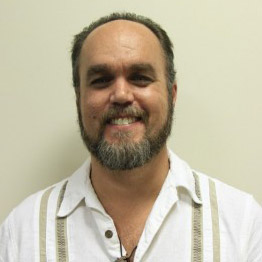Rape is not sex. No matter how superficially similar the acts might seem, they are fundamentally different. Most reasonable people would agree, and in our society rape is considered a crime.
are fundamentally different. Most reasonable people would agree, and in our society rape is considered a crime.
There is one place where things are different though: prison. Somehow, at least to many people, rapes that take place in that context are somehow different. They are seen as a natural consequence of being in prison, and thus somehow less serious than rapes that happen in other places. Some people even believe the victims deserve to be raped.
Despite the Prison Rape Elimination Act (PREA) of 2003 and its bipartisan support, public interest and political will to bring about change have remained fairly low. Prison rape is just not an issue that invites much concern. Not to say that nothing has changed, but a lot more needs to be done.
T.J. Parsell has an idea about how that might happen. Parsell, himself a victim of multiple rapes and exploitation at age 17, has taken his critically acclaimed book, Fish: A Memoir of a Boy in a Man’s Prison, and begun the task of creating a feature length motion picture out of the story.
The short film he shot during his first year in the NYU Graduate Film School can be seen here. The horror of being thrown into a world that no one should have to live in, especially a 17-year-old, is contrasted with the mundane reality of how easily such young people are cast aside to fend for themselves.
Now in his third year at the school Parcell is working to craft a movie that tells the fuller story, not only of exploitation and violence, but of survival as well. The longer film he hopes to create has the potential to reach a much larger audience, and to put a human face on a story that remains all too common.
Parcell is by all measures a successful man. He has had a thriving business career. He has worked at the highest levels of policy development, participating in negotiations with state agencies to craft survey tools in support of PREA. He has used his own story to awaken people around the country to the realities that prisoners, including juveniles, face on a daily basis. Now he has turned his talents to film making.
Parcell told me that some of his film had been shot in the very prison where he had been raped, and I was curious about how it was for him to return there after so many years. He told me he had operated the levers that controlled the cell doors, standing in the control booth, hearing and feeling the shudder that runs up and down the cell block when the doors open and close.
What was it like? I asked. “John, it was empowering,” he told me. Here, in the spot where he had been subjected to so much suffering and powerlessness, he was in charge. Accompanied by a film crew, and with his camera, he was pointing a “giant lens” into the darkness, a darkness he has worked to reveal for many years.
I hope his plan works, and that his vision is realized in this movie.
Check out his page on kickstarter to learn more about Parcell’s life and work, and most importantly to contribute to his project. This is not a movie Hollywood would typically make, but it is a story we need to see, hear and feel.
John Lash is a regular contributor to JJIE, writer and curator for Youthpolicy.org’s Youth and Justice blog, and the program director at the Georgia Conflict Center. He is also a student in the Kennesaw State University Master of Conflict Management program. His interest in restorative justice, Nonviolent Communication, youth, and mind – body practices developed during his nearly twenty five years of imprisonment.































